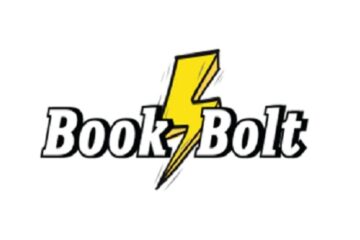Should your business start using CRM?
Have you ever thought about how Customer Relationship Management (CRM) might affect your business? CRM tools have become an important part of businesses all over the world, filling in gaps in customer interactions, sales, and marketing.
No matter how big or small your business is, CRM solutions can be customized to fit your needs, even if you’re looking for the best CRM options for small businesses in Australia.
In this article, we’ll talk about the problems that a CRM platform can help your business solve, the important role that it plays, and the many of its solutions that are made to fit the needs of different types of businesses.
What problems can a CRM help your business solve?
Integrating Customer Data:
These systems put all of your customer data in one place, making it easy to access and giving you a better understanding of your customers. This helps people make good decisions.
Lead Management, Advanced:
It has powerful tools that make it easier to manage leads, track where they come from, keep in touch with them throughout the sales process, and turn them into customers.
Service to customers is better:
A CRM system gives your team a full picture of how customers interact with you, so you can see patterns, trends, and customer preferences. It gives your team the tools to give personalized service, which makes customers happier and more loyal.
How to Make the Sales Team Work Better:
These systems can automate boring tasks, making it easier for your sales team to do their main job, which is selling, and giving them more time to do it.
Better working together:
A CRM system makes it easier for team members to share information, coordinate activities, and work together on deals. It helps get rid of duplicate work and makes sure everyone is working toward the same goals.
Why your company should think about getting a CRM system?
Keeping customers: A CRM system makes it easier to keep track of customer interactions and preferences, which allows for personalized service and, as a result, makes customers more loyal and keeps them around longer.
Precise Sales Forecasting: Its insights into your sales pipeline can help you make data-backed decisions about your sales strategy and more accurately predict future sales.
Increased Marketing Efforts: It can help you divide your customer base into groups and target them with personalized marketing campaigns. This makes marketing more effective and increases the number of people who buy from you.
Scalability: As your business grows, a CRM system changes with it. It can be changed to fit your changing needs, so you always have the tools you need to keep your customer relationships running smoothly.
Competitive Advantage: A CRM system can give you a big edge over your competitors, who may still be using manual processes or old systems. By using this to its full potential, you can offer better service, make smarter decisions, and stay ahead of the competition.
Centralized Data Management: Businesses often have trouble when their data is spread out and their systems aren’t connected. A CRM system puts all of your customers’ information, interactions, and history in one place. This makes it easier for your team to find the information they need and helps them provide better service and make better decisions.
Better Communication: A CRM system makes it easier for your team to talk to each other by giving everyone a place to store and access customer information. This makes it easy to understand what customers want and need, which makes sales and customer service more effective.
Automation of Mundane Tasks: It systems can automate repetitive tasks like data entry, lead tracking, and follow-up reminders. This lets your team focus on strategic tasks, which increases productivity and efficiency.
Refined Customer Segmentation: This lets you divide your customers into groups based on things like their demographics, purchase history, and preferences. This lets you make marketing campaigns that are more relevant to each group, which leads to higher conversion rates and happier customers.
What are the different kinds of CRM that businesses can use?
Operational CRM: This type of CRM focuses on making things like sales, marketing, and customer service easier to do every day. It’s good for businesses that want to be more productive and efficient.
Analytical CRM: Analytical is a system that looks at data about customers and gives insights that can be used to help make strategic decisions. This type of CRM is great for businesses that want to learn more about their customers and make decisions based on what the data says.
Collaborative CRM: A collaboration of these systems makes it a priority for different departments and teams within an organization to talk to each other and work together. It’s perfect for businesses that want to improve how well their employees work together and work toward the same goals.
Industry-focused CRM: Some of these systems are made to meet the specific needs of certain industries, like real estate, finance, or healthcare. These systems have extra features and integrations that are made just for these industries. This makes them very useful for businesses that work in these industries.
Conclusion
A CRM system is invaluable for businesses that want to improve their customer relationships, streamline their operations, and speed up their growth. By learning in depth about the problems that this can help solve and the benefits it can bring, you can decide if your business could benefit from this system and which type would fit your needs best.



